Hall of Fame jockey Glen Boss answers racing’s big questions
Glen Boss is one of racing’s most exuberant characters but is also a deep thinker as he gives his thoughts on whether the Melbourne Cup is losing its gloss.
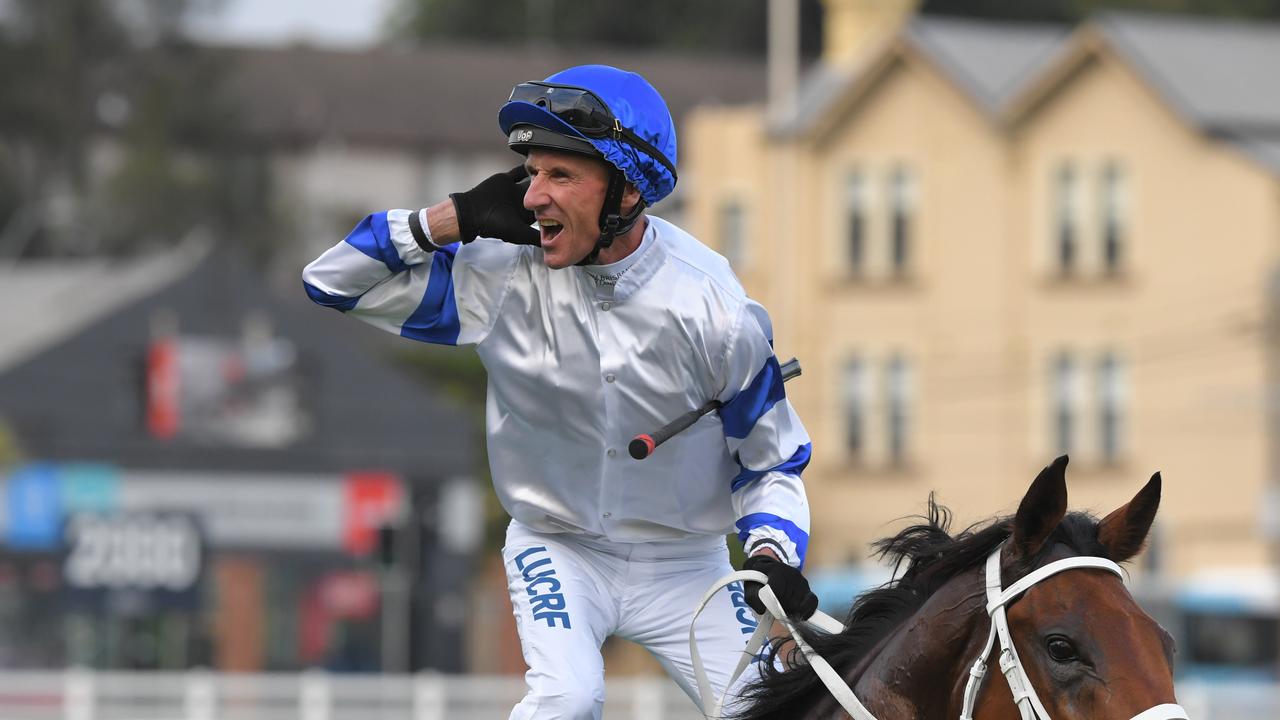
Three-time Melbourne Cup winner Glen Boss has never been afraid to open up on the positives and negatives of the racing industry.
Boss, at 51, is one of the sport’s senior statesmen. The champion jockey discusses whether the Melbourne Cup is losing its gloss, the future of ‘pop-up’ races and takes a glimpse into the future of Australia’s wagering landscape.
He also explains why the future of racing lies with its women.
The Form: Complete NSW Racing thoroughbred form, including video replays and all you need to know about every horse, jockey and trainer. Find a winner here!
ARE AUSSIES FALLING OUT OF LOVE WITH THE MELBOURNE CUP?
The Hall Of Fame jockey, who famously won the great race in three consecutive years with Makybe Diva, believes the Cup has issues in terms of its public perception.
“This is just my opinion. But I don’t think it’s that they (the public) don’t love the race anymore — it’s just that they don’t know it,” Boss says.
“They don’t know the participants, they don’t know the horses.
“I think it’s become such an international event that Australians simply don’t win it anymore.
“I don’t think there is any one answer that can get this right. There’s many things at play.
“The Melbourne Cup has also probably also copped a bit of a bashing in the last few years because unfortunate deaths have happened and they are doing their best to rectify it.”
Boss says the cost of buying a Melbourne Cup winner is now wildly out of reach of most.
“Lloyd Williams goes out there and spends a hell of a lot of money each year to win a Melbourne Cup,” Boss says.
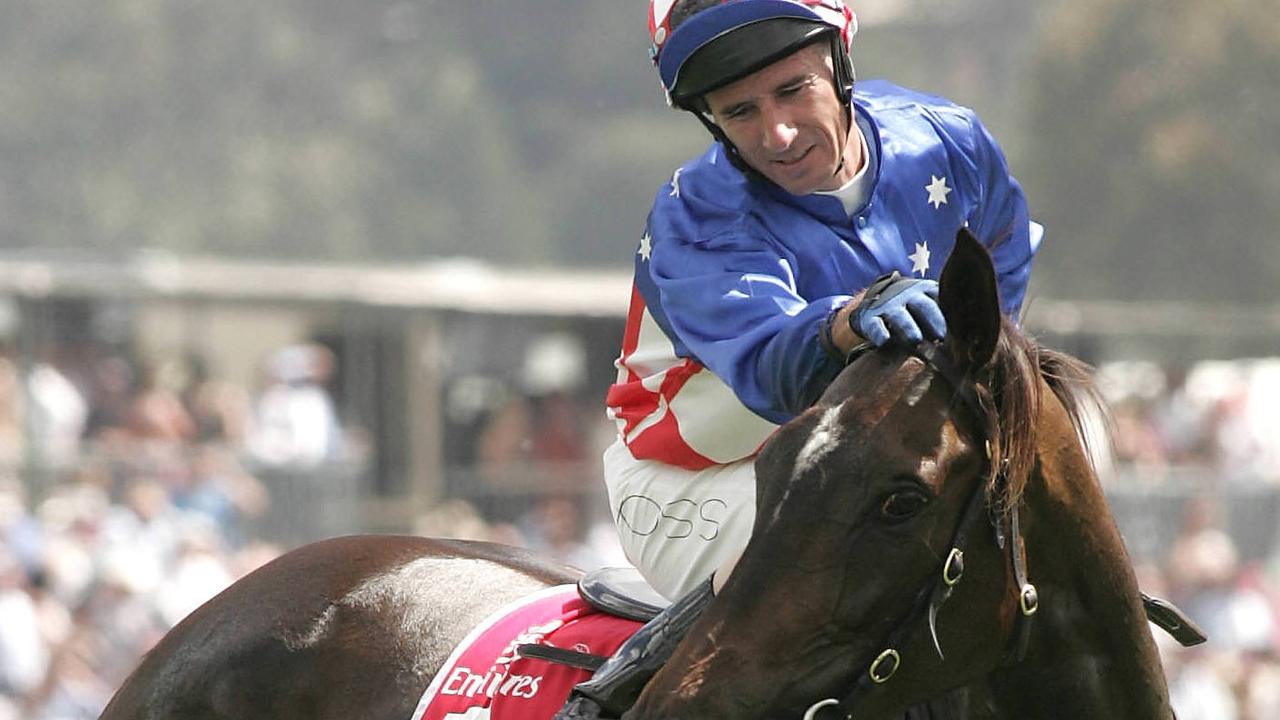
“He spends a lot more than what the Melbourne Cup prizemoney is actually worth if he wins it.
“He’s a wealthy guy and that’s his thing. But there are very few people who can do this, it’s a bad business model.
“One of the issues with the Melbourne Cup is that not many owners are going to spend a million dollars on a horse that is not going to get to the track until its four and hopefully when its five and a half, they might have a horse who can win a Melbourne Cup.
“Also for punters, they do know the horses in The Everest, they don’t know the Melbourne Cup horses.
“The Everest is where they get emotionally involved because they know the horses. We are also the world’s best at producing sprinters.
“For instance, Bivouac will go and beat them anywhere in the world if he wants.”
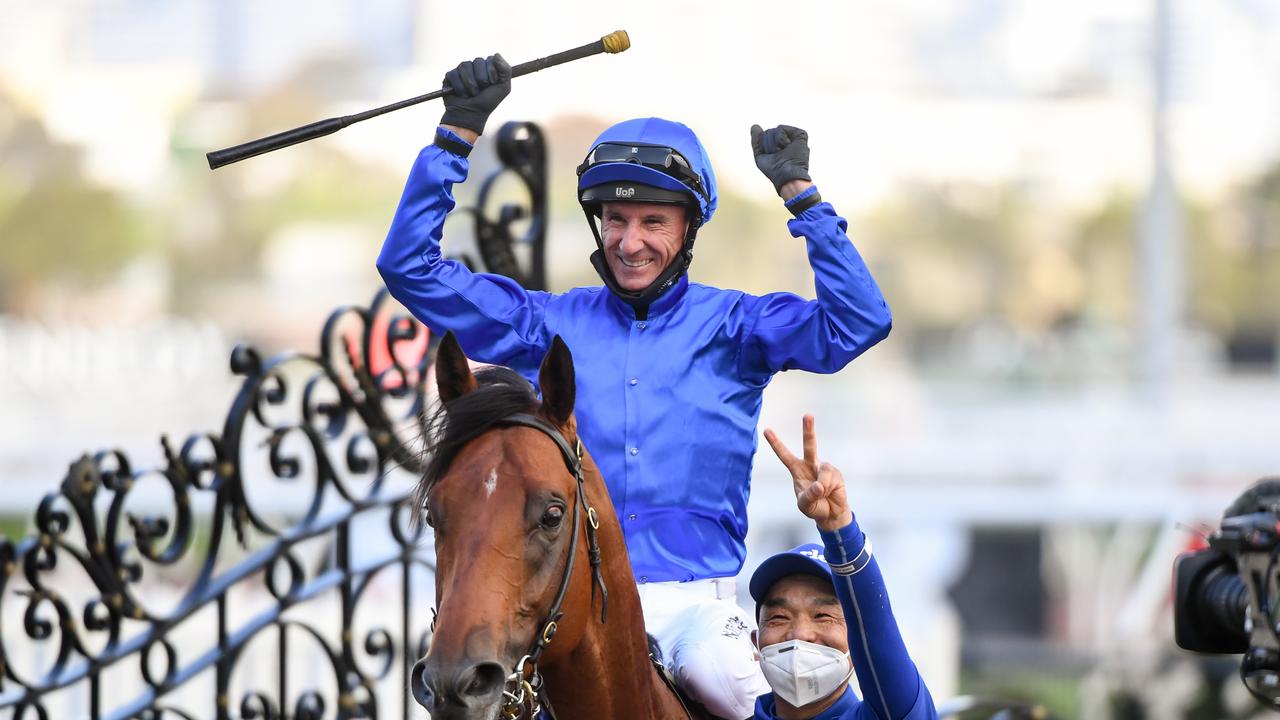
LOVE AFFAIR WITH THE EVEREST, ALL-STAR MILE
“I love these concepts and I think they have got it 100 per cent right,” Boss says.
“It’s captured an audience that we didn’t have before, it’s got the attention of young people.
“When I meet people and I say I have won The Everest they really take notice. It’s got that hype about it.
“But if I say I’d won the Doncaster or an Epsom — which I consider major races — they say don’t really care. But I talk about winning The Everest and straight away you can see their eyes light up.”
THE FUTURE OF THE ‘POP-UPS’
Boss thinks the likes of The Everest and All-Star Mile will only get bigger and better and more bold in a bid to seduce more young fans.
“We are in a game which is hard to sell and it may have been dying a slow death in many places,” Boss says.
“If we don’t get these younger audiences involved, then we are in big trouble.
“You need these so-called pop-up races because they create controversy, for instance what about Peter V’landys putting The Everest barrier draw on Opera House?
“That was bang, he knew he was going to get controversy. So clever.”
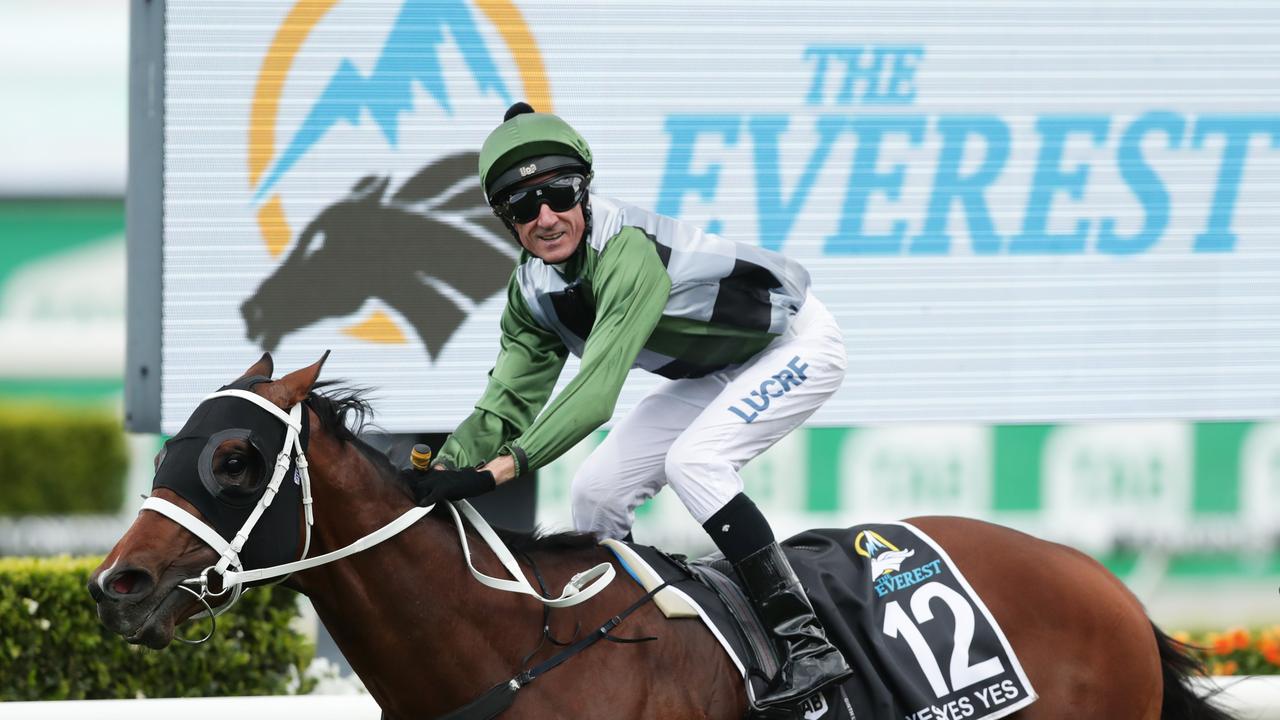
WHAT’S NEXT FOR THE PUNTERS?
So what other changes does Boss believe are needed, especially for punters who are the lifeblood of the game?
“I think there must be a national tote, bigger pools and it means better odds for the punters,” Boss says.
“I’m looking at it from an industry point of view — how does this industry survive?
“If there are bigger pools it is very attractive — Hong Kong is a model that works.
“Better odds, more people betting because they are getting more value and more money coming back into the industry is just a win, win, right?”
WOMEN IN RACING
When eventual champion AFL coach Kevin Sheedy arrived at Essendon in the early 1980s he told the club it was only working on three cylinders.
He explained to officials that the sport was only really reaching half the population and that women needed more involvement in the sport.
Boss said racing could also do the same on the back of the success of female jockeys in recent years.
“I think the girls have really come along in the last five years,” he said.
“People used to say they were too weak and it’s the biggest load of bullshit of all time.
“I really encourage the girls and I know that punters are really in their corner now.”
Walk into any TAB or TAB area in a pub on a Saturday and it’s virtually all men in there punting.
Getting more women enjoying the form guide, and not just the fashion, would take racing to new heights in the decades ahead.
“The girls should be really pushed forward and promoted because they are doing well,” Boss said.
“My wife loves backing the girls. Women can help take the sport to another level. They can open up a big audience for us.
“Women ride stacks of winners because they’re quiet on them and go within them. That’s how you get the most out of a horse. You don’t interrupt their stride.”
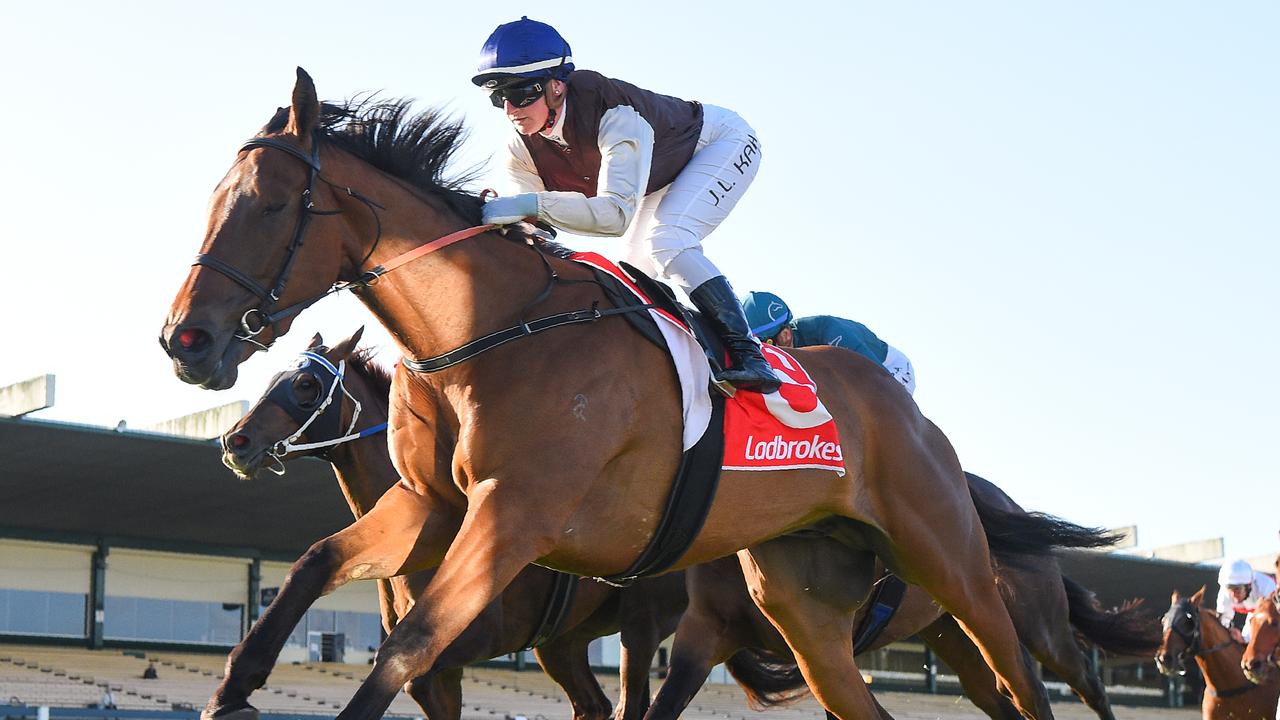
TOO MANY TRACKS?
With four metropolitan tracks and five provincial clubs, Boss feels a few big decisions could benefit the sport long-term.
“There’s too many race tracks,” he said.
“They won’t want me saying this but Gosford and Wyong aren’t particularly great places to ride at. They’re tight turning tracks.”
The more punters there are the bigger racing gets, it’s that simple.
Boss thinks a new racing centre, with a big track containing a long straight would be much more appealing for punters than the bias Canterbury circuit which is getting to the point where punters have lost confidence betting at.
“I’d love them to build a purposely built super track one day where there’s two races tracks at the one complex and every horse had it’s chance to win. That’s what punters want and without the confidence of the punters we’ve got nothing,” Boss said.
“I think Canterbury has run it’s course. If punters aren’t confident enough to bet on it, it’s got to go.
“People might be upset about me saying this but I think Warwick Farm and Canterbury should be sold off and we could find some land to build a super centre that we could race at most days of the week.
“Crowds will be there for Randwick and Rosehill for the big days, but realistically we don’t need the crowds there for the other meetings but we do need the turnover which creates prizemoney and stimulates the industry.
“We don’t need crowds outside the big carnival days. We need more people who have the confidence to bet.”
Boss has also called for racing to take one day off each week so the participants “can catch their breath”.
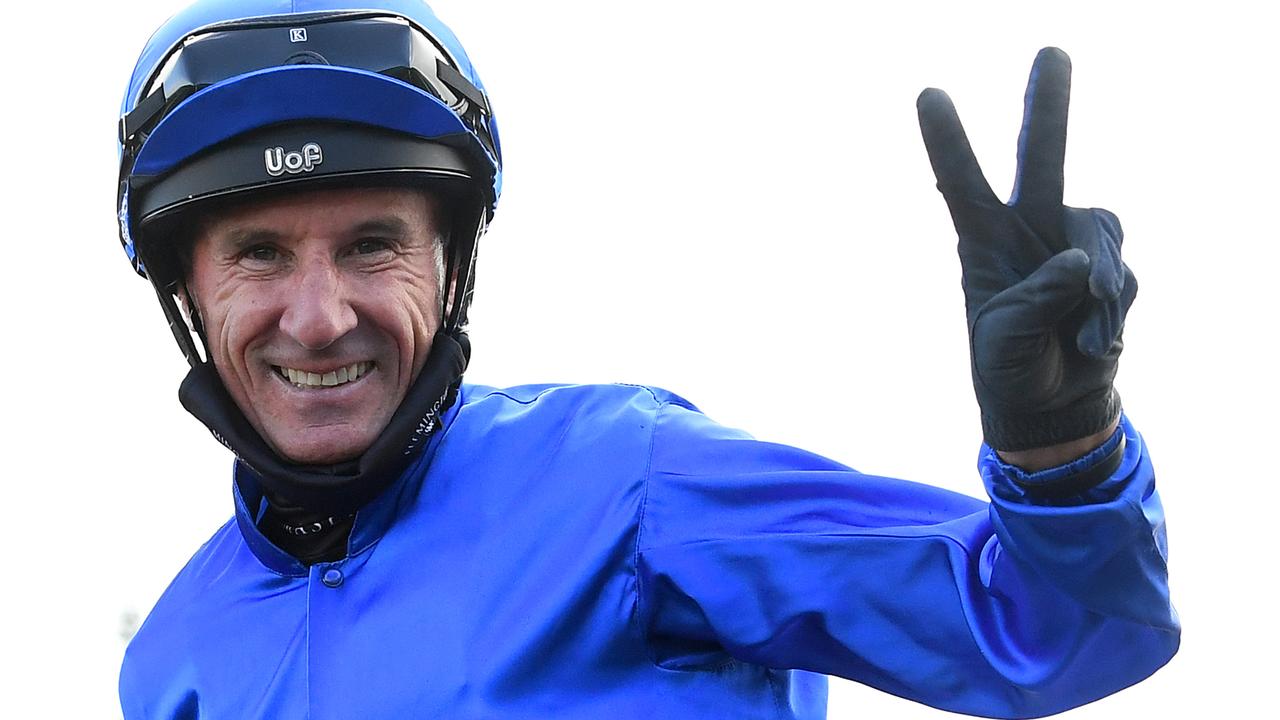
WHIP USE
Boss doesn’t want the whip to be banned and he’s got plenty of reasons for that even though he’s not a big whip rider.
He never hits a horse hard and, frustratingly, has been criticised for not being hard enough with the stick in the past.
“The whip is just a reminder to say this is when you have to be at your best and you don’t have to belt them to do that. I just touch them and they know,” Boss said.
“The girls are so good because they’re balanced and quiet.
“It’s a tool and we need it because horses need to be pulled into line and guided every now and then. We’re sitting on a half-tonne animal and people have no idea how quickly they can do things.
“A tap on the shoulder and bring them straight back. I love the horses and I wouldn’t want to hurt one.”
What frustrates the jockeys is that it’s people who don’t ride horses are mainly responsible for pushing a whip ban.
It’s not only a safety tool but an accessory to enable a horse to perform to its best.
“Eventually I think we’ll be reserved to backhanders only but we should never get rid of it,” Boss said.
“If you were driving down a freeway and I took the steering wheel away from you you’d be scared.
“Humans are like horses. If you don’t have someone to push you, you won’t go to another level.”
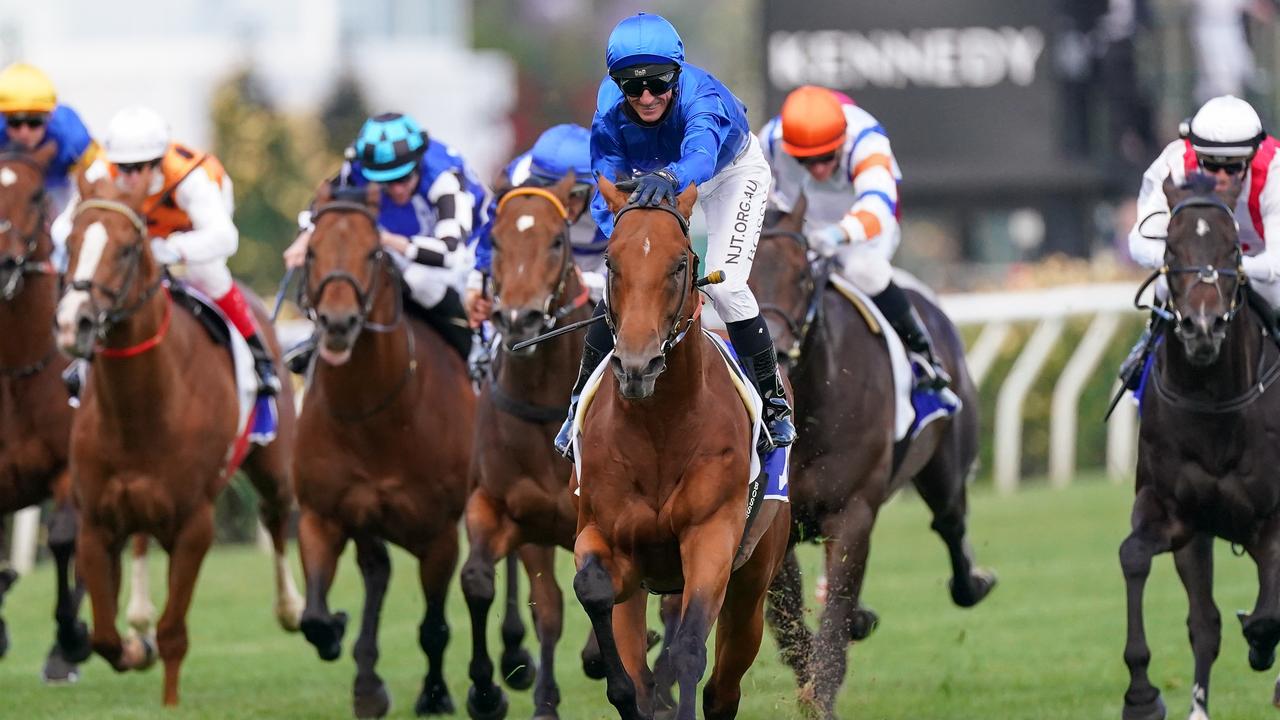
CLASSIQUE LEGEND V BIVOUAC
After Bivouac’s scintillating win in the VRC Sprint when he demolished a Group 1 field I asked Boss if he was better than Everest winner Classique Legend, saying he’d obviously be bias towards the Godolphin star.
“Not at all,” he snapped back.
“Classique Legend beat him fair and square in the Everest so is he better than Classique Legend? Not on the scoreboard.
“They’re both outstanding. I just wish we met him in The Everest third-up. That’s the only thing I would say, but I still don’t think we would’ve beaten him because he beat us by three lengths. It’s good pub talk.”
Boss only had two winners in Melbourne this spring but they were two of the carnival’s biggest races.
“You’d cop a Cox Plate win every time you went down there and I thought I gave Sir Dragonet a great ride in the Cox Plate,” Boss said.
“It was probably the difference between winning and losing. I thought my ride was the best ride in the race. Damien Oliver’s was good too.
“I expected Bivouac to win his race. He’s at a different level now and in the autumn he’ll be even more mature.
“He’s colt that’s really confident and he made good horses like Libertini and Nature Strip look pretty ordinary.”
MELBOURNE V SYDNEY JOCKEYS ROOMS
Boss said there was a few little differences between the boys and girls in Sydney compared to Melbourne but made one big call on the quality.
“Out of the top 10 jockeys in Australia, I’d day eight of them are in the Sydney jockey’s room,” he said.
“I think it’s more intense in Sydney because the competition here is tougher.
“The guys in Victoria are a bit more relaxed. The camaraderie in the rooms is very similar and there’s a lot of love in the rooms.”
PACE IN RACES
Earlier this year stewards were critical of Nash Rawiller’s front-running ride on Mushaireb when he set a strong pace before being run down by Fun Fact to run second at Randwick.
Rawiller claimed staying races in Australia were “run too slowly” in his defence after the race.
So are they?
“That’s all up to the jockeys. We run races how we want,” Boss said.
Boss quickly wanted to dismiss a myth the average punter might have when it comes to judging the speed of a race.
“People think the leaders control the speed and that’s not the case at all. It’s the jockey running second,” he said.
“The leader sets the speed but doesn’t control it.
“They can choose to make the speed faster if they like. The jockey in second controls the race because if the one in front is going slow he can move and if it’s going quick enough he won’t move.”
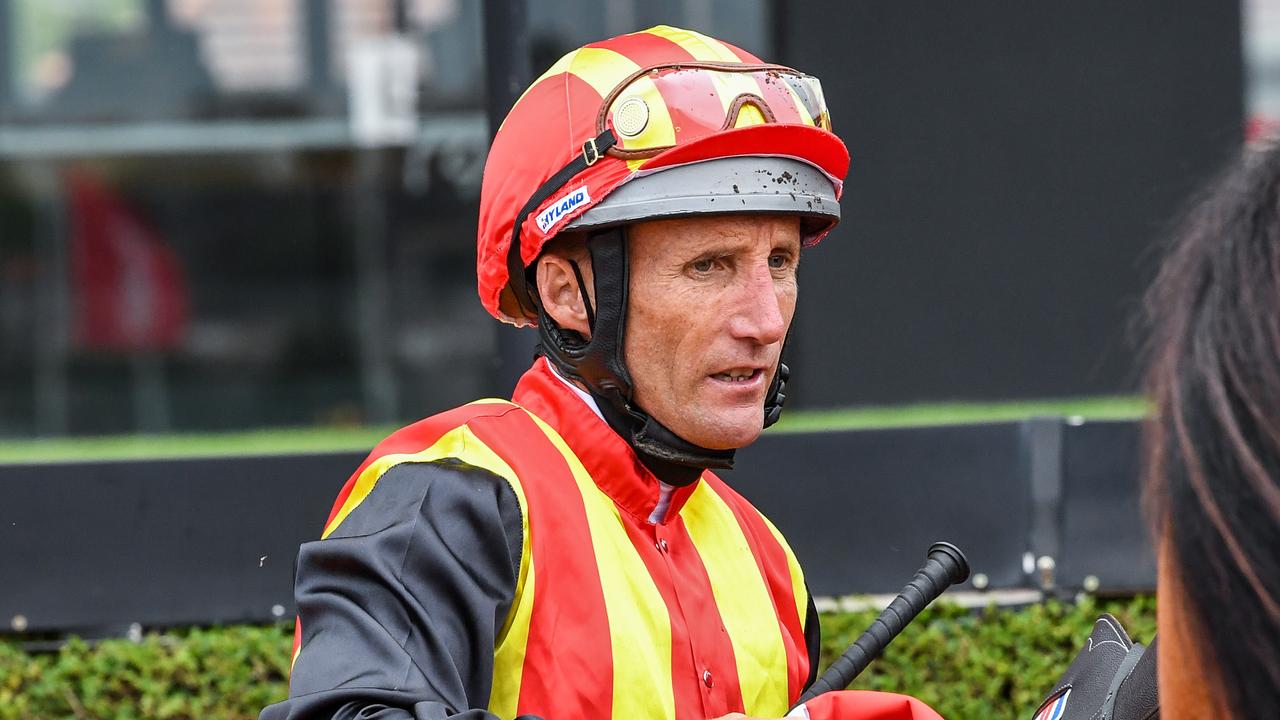
100 GROUP 1 WINNERS
Boss, the three-time Melbourne Cup winner, sits eighth on the all-time Group 1 wins as a rider in Australia and is so close, yet so far from 100 majors.
He feels if he stays fit and rides of for a few more year then he’ll reach the mark only achieved so far by George Moore, Damien Oliver, Roy Higgins and Jim Cassidy.
“I’ve got six international Group 1s and 88 in Australia,” Boss said.
“I guess they won’t count the overseas ones here. It would be nice to get to the 100. They’re hard to win though.”
Originally published as Hall of Fame jockey Glen Boss answers racing’s big questions


